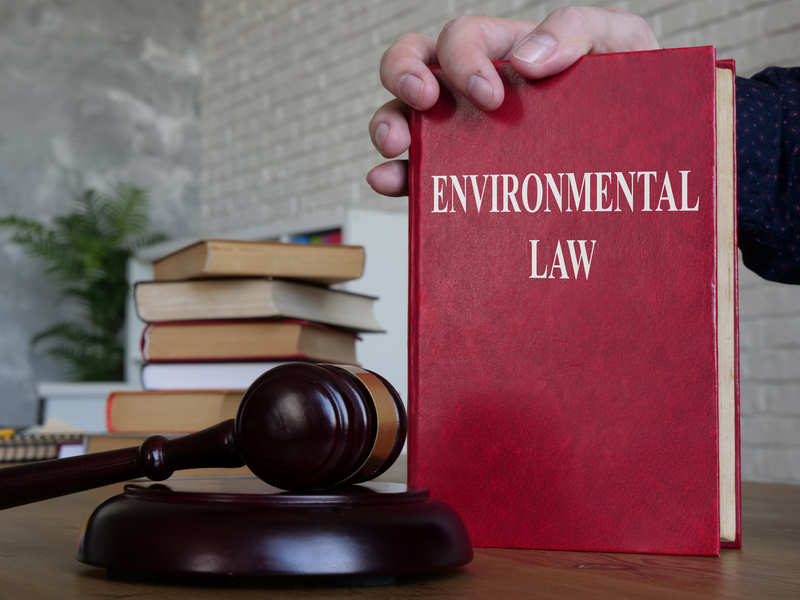
The Biden government, currently set to participate in January 2021, will face unprecedented challenges. These struggles, for example, coronavirus pandemic, President Trump's legal challenges to the election results, the telephone to deal with racial inequality, and also the necessity to unite a divided nation after a controversial election, will compete for the instant focus of President-elect Biden. The Biden team might need to weather these dangerous times while concurrently implementing its environmental agenda. What does the future hold for ecological legislation under a Biden government? We provide our perspectives regarding a Biden government below in the kind of answers to questions we anticipate are the most frequent in the wake of the election outcomes.
In light of the tight borders from the election that reflect deep divisions in the nation, the Biden government can adjust its schedule to examine in which it could discover bipartisan solutions. Combating climate change and facing environmental justice problems will stay paramount, however, the new government could also expand its schedule to boost job creation and new economic opportunities for rural communities.
Can we anticipate great environmental law under a Biden government, and the way will Biden reverse various deregulatory initiatives under the Trump government?
The Biden government will want to undo the deregulatory agenda of the Trump government, across several fronts but, as mentioned above, it expects that these reversals might modulate in light of their close election. How fast the new government can do this is dependent upon the activity it attempts to reverse. Most immediately, President-elect Biden can reverse Trump's Executive Deal with little over a stroke of the pencil. For final regulations and rules, the Biden government might need to participate in a significantly more and complex procedure. Unless democrats do finally take charge of the Senate, the Biden government won't be able to rely upon the Congressional Review Act (CRA) as an instrument for policy change.
To begin with, we could anticipate the Biden government to act fast to reverse the different Executive Orders (EOs) issued by President Trump.
Repeal or Abandonment of Trump Rulemakings
Secondly, the Biden government will want to reverse a few Trump rulemakings. To repeal a law, an agency should provide a reasoned explanation and supply public notice and comment. President-elect Biden will even probably participate in brand new rulemakings, and it is a more procedure that needs a justification for the shift in coverage, public opinion and comment, and answers to comments before finalization of this rule. If the rule is vital, it has to assess with the Office of Information and Regulatory Affairs at the Office of Management and Budget, and a cost-benefit analysis might be necessary. The following are some examples of possible regulatory changes:
What environmental inspections will be necessary for my licenses? Is streamlining something of the past?
The Biden government has a double agenda of environmental protection with economic growth, via the stimulation of fresh energy markets and infrastructure jobs and much more stringent regulatory supervision. The government may correct its stage given the election's tight margins to attempt to build coalitions wherever possible. Because of this, a lot of the Trump government's streamlining initiatives that target for change may endure for the sake of building goodwill with specific businesses of the American market.
One place in which the Biden government will grapple with this life is about the recently revised NEPA regulations. Simply speaking, the Trump government's final rule includes significant procedural and substantive changes that have reducing the reach of if NEPA implements, eliminating consideration of cumulative impacts, increasing the use of categorical exclusions, also restricting the breadth of sensible alternatives. The Biden government will probably try to amend the new law to ensure the consideration of climate change impacts but, it may also be cautious of eliminating noise-canceling steps that will empower its infrastructure projects to move on time.
Will enforcement increase under the Biden administration?
Enforcement amounts (instances, testimonials, testimonials) are at a historical low under the Trump Administration. The Biden government will concentrate on working out its enforcement jurisdiction, especially in its struggle against climate change and the security of environmental justice communities. In this aspect, there'll be an increase in authorities under the various environmental pollutants with an emphasis on Clean Air Act instances, secure drinking water, and cleanup of environmental contamination that negatively affects marginalized and disadvantaged communities.
Section of the increased focus involves the establishment of an "Environmental and Climate Justice Division" inside the Justice Department to violate environmental offenses. The Biden government will also probably reverse President Trump's October 2019 E.O. 13892, entitled "Promoting the Rule of Law Through Transparency and Fairness at Civil Administrative Enforcement and Adjudication," that allow controlled entities greater chance to give input on the alleged breach before authorities and illegal sole reliance on advice documents when bringing enforcement activities.
Given the advantages of SEPs to disadvantaged communities, there can be a change in the DOJ memorandum.
Regarding climate change, the Biden management has signaled it won't reevaluate the Obama-era cap-and-trade system and will instead impose penalties on businesses that fail to fulfill specific technology emissions and control requirements. The Biden administration is going to be centered on authorities of methane emissions in the oil and gas sector in addition to carbon emissions from power plants, among other sectors. The Biden government has also indicated it is going to boost coal companies' obligations into the black lung benefits plan and require public companies to disclose climate-related monetary dangers as well as the greenhouse gas emissions within their operations and supply chains.

Will the Biden government mean that the end of fossil fuel energy and a brand new age in renewables and clean energy?
Having a goal of a carbon-free energy industry by 2035 and net-zero carbon emissions by 2050, it's very likely that the fossil fuel sector is going to affect. The Biden government promises to pursue an aggressive policy to satisfy its clean energy goals and also to combat the consequences of climate change.
President-elect Biden has assured, as an instance, to prohibit any new oil and gas development on public lands. The Biden government will probably reverse these conclusions, stop the expansion of conventional growth on public lands, and research Congress on the compulsory leasing scheduled for ANWR. The new government can expect to reinstate the coal moratorium on public lands and need further environmental reports for recovery projects, for example, Dakota Access. For further details about Biden's schedule involving public lands, click here. However, the government may also tread carefully in which large, rural communities have been negatively affected by these policy changes and search for solutions to construct new markets in these areas.
The Biden government will probably embrace a variant of this Obama-era Clean Power Plan (CPP), revoke the Trump government's E.O. 13783, also repeal the Affordable Clean Energy rule, to be able to carefully regulate coal and gas-fired electricity plants. The new government is expected to pursue a new rulemaking, such as an evaluation of its ability to control"outside of the fence line." Relatedly the Biden government will evaluate the defensibility of this Obama-era"GHG New Source Performance Standards for Power Plants," which modulates carbon contamination from refurbished or new power plants. The Trump government hasn't adopted the last law, leaving the 2015 rule under legal challenge.
The Biden government will re-enter the Paris Climate Agreement, restart payments into the Green Enforcement Fund, also ratify the Kigali Amendment to the Montreal Protocol. The government also has announced plans to convene a climate world summit from the first 100 days.
The Biden government has established goals for installing 500 million solar panels (such as 8 million solar roofs and neighborhood solar panels ) along with 60,000 wind turbines through community-based and utility-scale systems. Additionally, the government will aggressively advance the queue of pending offshore wind project programs in the Atlantic and will concentrate on job development initiatives from the U.S. to create those projects.
Another significant initiative is the service for electrical vehicles. The government choose to convert 500,000 college buses to zero emissions, and construct 500,000 charging stations for electric vehicles, exercise its buying power to convert 3 million vehicles in the national fleet to wash automobiles (incentivizing the auto sector to generate additional energy-efficient automobiles ), and certainly will incentivize low-emission automobile technologies.
The Biden government will also attempt to take part in property conservation measures nationwide to attain the"30 x 30" aim of shielding a third of the planet's landmass from 2030 to fight climate change through carbon sequestration.
